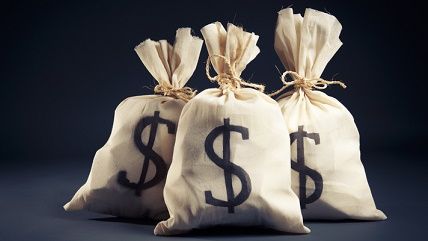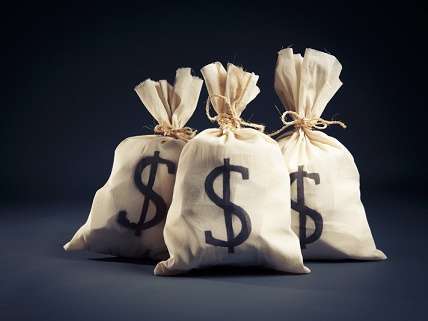Left and Right Should Condemn Crony Capitalist War on Herbalife
William Ackman's self-serving activism is shameful.


Little common ground exists between the left wing and right wing these days. One exception found in the emergence of the tea party and Occupy Wall Street movements is a healthy distrust in the motives of politicians and government regulators. These concerns are vindicated when officials are caught teaming up with the super rich to abuse political power.
Case in point: hedge fund manager William Ackman's attempt to salvage his so-far losing bet by using the power of government agencies to sink the stock of the nutritional supplement company, Herbalife. Why? Because in 2012, the activist billionaire made a $1 billion bet on the collapse of the company by shorting its stock. He then took the rare step of publicly announcing his position, while declaring the company as the "best-managed pyramid scheme in the history of the world." He even boasted that the stock would eventually fall to zero.
Risky moves can be very lucrative. They can also be costly. Three years later, it's clear that other investors aren't convinced. While Herbalife's stock has been volatile, it's nowhere close to worthless. Over the past few months it has even been valued higher than when Ackman made his risky play.
The crux of his argument is that Herbalife is a multilevel marketing firm, and therefore a pyramid scheme. MLMs use independent contractors to distribute their products and typically reward them both for selling product and recruiting other distributors. The main product of Herbalife is a meal-replacement shake powder. Prominent examples of MLMs include Avon and Tupperware.
Other investors didn't bite. For one thing, courts and regulators rejected the idea that the MLM structure alone is sufficient to identify a pyramid scheme. In pyramid schemes, recruitment provides the bulk of income and products rarely end up in the hands of consumers that aren't themselves distributors. This doesn't seem to be the case here at all. Herbalife actually sells products—its shake powder sells more than the three leading competitors combined, including the popular SlimFast—which is likely why investors have stuck with the company, despite the onslaught.
Pyramid schemes tend to collapse before they are as old as Herbalife, which was founded 35 years ago and brings in $5 billion in revenue.
Ackman's position is a tough sell, but that hasn't stopped him from trying. In a very ugly move, the investor is now betting that the government will take down the company so he can finally cash in.
Using all the political influence his corporate money can buy, he has been putting pressure on state and federal regulators to investigate Herbalife in hope that the company's stock would finally dive. To build his case, an investigation by The New York Times reports that he organized "protests, news conferences and letter-writing campaigns in California, Nevada, Connecticut, New York, and Illinois, although several of the people who signed the letters to state and federal officials say they do not remember sending them."
His lobbyists also scoured the country to find distributors who lost money and could be held up as victims, and convinced members of Congress to write to the Federal Trade Commission encouraging an investigation. Ackman also made presentations directly to the FTC, the Securities and Exchange Commission and federal prosecutors.
The costly efforts are beginning to pay off with the FTC and SEC initiating investigations, and now a New York state senator promising to introduce legislation.
What's troubling is not that a company is being scrutinized; it's how that scrutiny can be bought by another private entity with a vested interest in the outcome. Short selling is a valid investment strategy with numerous benefits, such as providing liquidity and checks against bubble-inducing hype and excessive optimism. It's another matter entirely if officials step in when that strategy goes awry.
Regardless of one's impression of Herbalife as a good or bad company, one place of common ground should be in the belief that the super rich should not get bailed out by the government. If Ackman's lobbying pays off, however, we can expect many more to follow his example.


Show Comments (27)